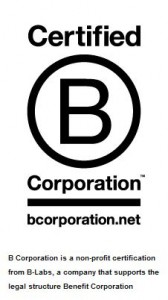 On June 17, 2011, New York’s Legislature became the fifth state legislature in the nation to pass a bill authorizing a new type of corporate entity called a “Benefit Corporation.”
On June 17, 2011, New York’s Legislature became the fifth state legislature in the nation to pass a bill authorizing a new type of corporate entity called a “Benefit Corporation.”
Under the bill, a private, for-profit business would be permitted to incorporate as a “Benefit Corporation,” with the stated corporate purpose of serving a general or specific public benefit (as defined in the bill). The Benefit Corporation is essentially a hybrid form which permits a for-profit corporation to exist for primarily public or social benefit corporate purposes (previously reserved to non-profit entities), rather than exclusively for the purpose of maximizing shareholder profit.
The bill (S00079) passed both Houses of the New York Legislature unanimously: 62 to 0 in the Senate and 139 to 0 in the Assembly. As of this writing, the bill is pending signature by Governor Cuomo, after which it would become law.
Four other states (beginning with Maryland in April, 2010, followed by Vermont, Virginia, and New Jersey) had previously adopted similar laws authorizing Benefit Corporations of this kind. Hawaii passed a similar bill in July, 2011 which has already been signed by that state’s Governor, so upon signature of the New York bill by Governor Cuomo, New York would become the sixth state to adopt such a law.
Protection of Officers & Directors from Shareholder Litigation for Pursuing Public Benefit Purposes Over Maximizing Profit for Shareholders
Under the legislation adopted by each of these states, directors and officers of corporations that properly organize as “Benefit Corporations” and comply with the law cannot be sued by shareholders for breach of fiduciary duty if they pursue the stated public benefit purposes of the corporation in priority to maximizing profit for shareholders. This will be the case, even though the corporation also will be permitted to earn profits and exist as a for-profit entity.
Under current corporate laws and judicial precedents in all fifty states, directors and officers of a for-profit corporation have a primary fiduciary duty to maximize profit for shareholders. After signature of the new Benefit Corporation law by Governor Cuomo, this will change for those New York businesses that organize as “Benefit Corporations” and meet the requirements of the law.
The New York Benefit Corporation Law
“Benefit Corporations require companies to have a legal responsibility to stakeholders as well as shareholders so they can have a positive impact on their surrounding communities,” said Speaker Sheldon Silver (D-Manhattan). “This legislation demonstrates that profit and social responsibility are not mutually exclusive and that socially and environmentally-friendly business practices can enhance a company’s strength and profitability.”
Under the bill unanimously passed by New York’s Senate and Assembly, companies that elect to incorporate as or become a “Benefit Corporation” would be required so to indicate in their articles of incorporation, and to pursue through their business and operations a “general public benefit” (as defined in the law).
In addition to serving a “general public benefit,” a Benefit Corporation would also be permitted to specify in its articles of incorporation any general corporate purposes permitted to a for-profit corporation under New York’s General Business Corporation Law, as well as any “special public benefit” purpose the company elects to pursue, consistent with the law. The bill, however, provides that “the purpose to create general public benefit shall be a limitation on the other purposes of the benefit corporation, and shall control over any inconsistent purpose of the benefit corporation.”
“General public benefit” is defined in the bill as “a material positive impact on society and the environment, taken as a whole, assessed against a third-party standard.”
“Third-party standard” is defined to mean “a recognized standard for defining, reporting and assessing general public benefit” developed by an independent (unaffiliated) third party, which is transparent “because the following information about the standard is publicly available: (A) the factors considered when measuring the performance of a business; (B) the relative weightings of those factors; and (C) the identity of the persons who developed and control changes to the standard and the process by which those changes are made.”
As referenced above, in addition to serving the “general public benefit” and other for-profit corporate purposes, a Benefit Corporation would also be permitted to specify in its articles of incorporation a “specific public benefit” corporate purpose.
“Specific public benefit,” as defined in the bill, includes:
(2) promoting economic opportunity for individuals or communities beyond the creation of jobs in the normal course of business;
(3) preserving the environment;
(4) improving human health;
(5) promoting the arts, sciences or advancement of knowledge;
(6) increasing the flow of capital to entities with a public benefit purpose; and
(7) the accomplishment of any other particular benefit for society or the environment.”
The New York bill also provides that the Benefit Corporation would be required to deliver an “Annual Benefit Report” to its shareholders, specifying its progress in meeting its general benefit purpose and specific benefit purpose(s) in accordance with its “third-party standard,” and including certain other information set forth in the bill. The Annual Benefit Report (except for confidential financial information) would be required to be posted on the company’s public website.
The New York bill also includes provisions clarifying the fiduciary duties of directors and offers of a Benefit Corporation, as well as provisions that require approval of certain corporate actions (including change of corporate purpose, termination of Benefit Corporation status, or merger with a company that is not a Benefit Corporation) by a three-fourths vote of all shareholders in each class of stock entitled to vote on the action.
The bill, sponsored by Senator Daniel Squadron (D-Brooklyn) in the Senate, has been sent to Governor Cuomo for signature.
The Social Enterprise/ Public Benefit Corporation Movement
A movement has been building for more than 15 years, both in the U.S. and internationally, to establish this type of hybrid private, for-profit entity organized to serve a public or social benefit. Entities of this type are referred to variously as a “Benefit Corporation,” “B Corp.,” “Social Enterprise,” emerging “FourthSector” entity, or in the UK, a “Community Interest Corporation (CIC)”.
For more information on the Social Enterprise/ Public Benefit Corporation movement in the U.S. and internationally, see our separate post on Social Enterprise/ Public Benefit Corporation Movement Gaining Momentum.
Conceived as a way to harness the energy of the for-profit sector to serve public or social benefit, the movement has been promoted in the U.S. especially by such organizations as B-Lab in Pennsylvania and New York and the FourthSector network now in North Carolina, as well as a number of other organizations.
B-Lab has been at the forefront of the push to pass legislation recognizing this type of entity in the fifty states. In fact, New York’s bill and the Benefit Corporation laws passed and signed in each of the other five states so far quite closely resemble model legislation that was drafted by an attorney for B-Lab, working with a Business Associations Committee of the Pennsylvania Bar Association.
B-Lab has also established a voluntary “B Corporation Certification” program in which companies can choose to seek certification by B-Lab as a “B Corporation” by demonstrating that their operations achieve a required minimum score on a “public benefit” report card based upon a set of transparent weighted criteria developed by B-Lab for rating the “general public benefit” delivered by a company. A sample of B-Lab’s Certified B Corporation logo, which certified companies are permitted to display, is shown at the upper right of this post. By displaying this logo, a certified company can signify publicly that it has achieved Certified B-Corp status.
It is not currently necessary for a company to be legally organized as a “Benefit Corporation” under state law in order to qualify for B Corporation Certification from B-Lab. The states that have already adopted Benefit Corporation legislation, however, have generally accepted the B-Corp Certification by B-Lab as satisfying the independent “third-party standard” for measuring general public benefit that is required under those laws.
For more information on the B Corporation Certification program and the marketing and other benefits that companies see in obtaining it, see B-Lab’s website.
As referenced, in addition to the Benefit Corporation bill passed in New York, similar legislation has already been signed into law in Maryland, Vermont, Virginia, New Jersey, and Hawaii. And, according to B-Lab, at least nine other states now have similar legislation to establish Benefit Corporations pending in their state legislatures. These states include Colorado, North Carolina, Pennsylvania, Michigan, California, and others.
Other recent reports indicate that both houses of the California Legislature have in fact now passed the Benefit Corporation bill, and it has been sent to Governor Jerry Brown for signature.

